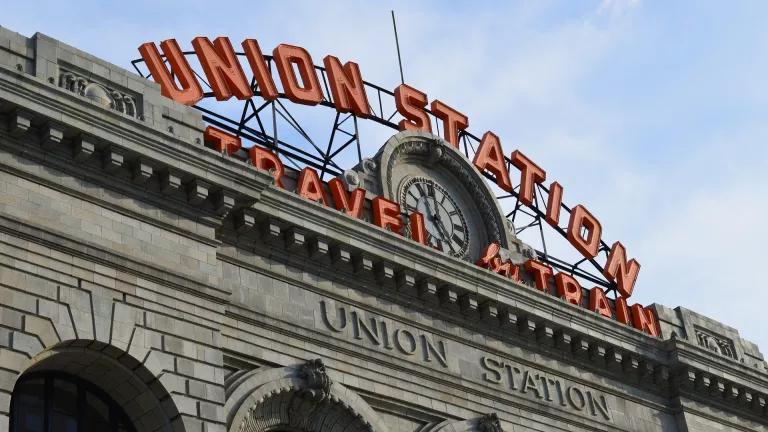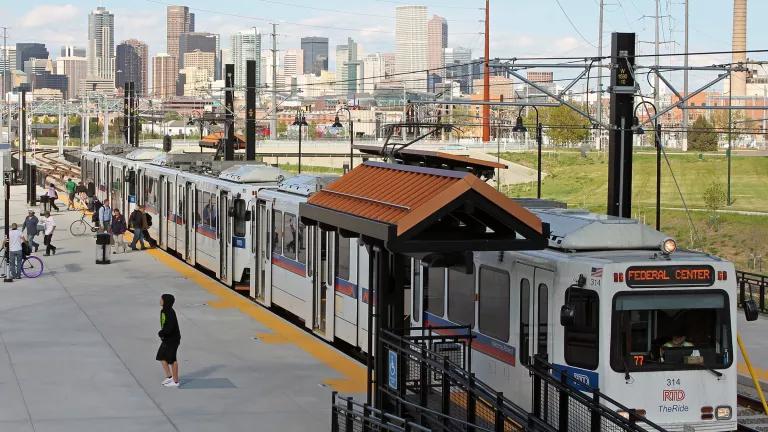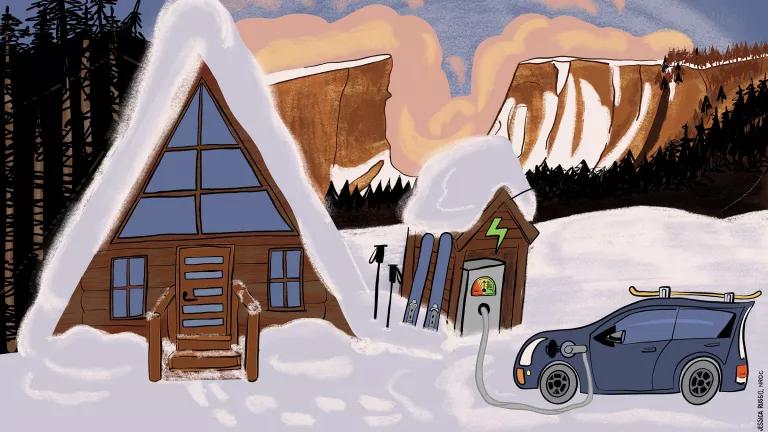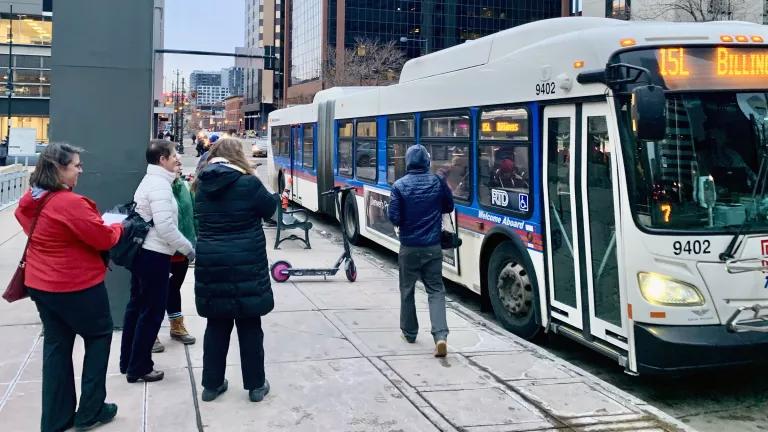
Timing is everything, especially when it comes to transportation.
The day NRDC’s Urban Solutions group, where I work as a senior adviser, sponsored the second Live.Ride.Share conference with partners WalkDenver, Transit Alliance, Colorado Public Interest Research Group (CoPIRG), the City of Denver and several other groups and surrounding cities was the same day Transportation Secretary Anthony Foxx arrived to talk to city leaders and stakeholders about Denver’s finalist status in the Smart City Challenge. The challenge winner will receive $40 million in federal funding for the development of mobility technologies to improve transportation and reduce carbon emissions.
Mayor Michael Hancock noted the intersection of events in his remarks at Live.Ride.Share and in an online post for the Department of Transportation—all just weeks after the city’s gleaming rail line opened to the airport and just a year after the CoPIRG Foundation and Frontier Group ranked Denver among the Top 10 cities in the nation for high tech transportation options.
Yes, it’s Denver’s moment, and it’s well-deserved considering the forward-thinking community that Politico just lauded for its ability to set aside differences and work together to temper the brown cloud of pollution that once plagued the city, offer options and opportunity in transportation and land use, and be inclusive of all communities in the process.
We were proud to highlight and elevate the conversation at Live.Ride.Share, which brought together a coalition of local and national transportation, business, environmental and advocacy organizations, and community, political and activist leaders on the rapidly growing, technology-driven trends and policies in transportation that are changing the way we live, work and travel.
The discussion went far beyond Denver to reveal the latest developments in innovative transportation solutions—ranging from new types of “smart” car pools to driverless vehicles—and discuss how they can transform cities, clean the air and improve public health, while also focusing on a renewed interest in walkable urban areas.
In addition to Hancock, among the speakers were Mark Dowd, the DOT’s deputy assistant secretary for research and technology; Emily Castor, director of transportation policy at Lyft; Will Carry, senior director for Special Projects at the New York City Department of Transportation; Gabe Klein, author of Start-Up City, former director of Chicago’s Department of Transportation and the force behind one of the largest bikeshare systems in the U.S.; Timothy Papandreou, director of strategic planning for the San Francisco Municipal Transportation Agency; Scott Kubly, director of the Seattle Department of Transportation; and Peter Norton, author of Fighting Traffic: The Dawn of the Motor Age in the American City.
One of the many crowd-pleasing sessions was the opening plenary featuring Klein and Norton in a dialogue, with Klein noting the deficits in transit in the United States and the lack of political will for fixing urban infrastructure and creating practical solutions to transportation such as better land use.

Norton put transportation in historical perspective, using research and colorful examples of the ways that Americans were seduced by car companies and marketing into believing the automobile was their birthright.

With that historical understanding, it makes it perhaps easier to look ahead. My colleague at NRDC, Deron Lovaas, director of state/federal policy and practice for Urban Solutions, put it simply in a statement that got a lot of positive reaction on social media.

Reaction to the conference was overwhelmingly positive, with these among the testimonials we received afterward:
"Thank you for putting this together. All of the work you did was extremely beneficial. I, personally, learned a lot and will use these lessons going forward."
"Thanks for a great event! I was excited and fired up to keep moving forward and testing all these options."
"I thought the event was excellent and really opened creative thinking on the future of our country’s chosen methods of transportation. I would love to continue these talks and events."
"It's always amazing to be in a room of like-minded individuals focusing on the same goals."
One conference goer asked us to keep the community “informed of what's current and how quickly paradigms are shifting across the country.”
The Denver conference followed by a little more than a year the first Live.Ride.Share conference, in Los Angeles, and there are plans for more to come as we navigate the new-transportation journey. We will, indeed, keep you informed.
Images from Twitter of the panel at the Live.Ride.Share Conference in Denver courtesy of Danna Walker.




